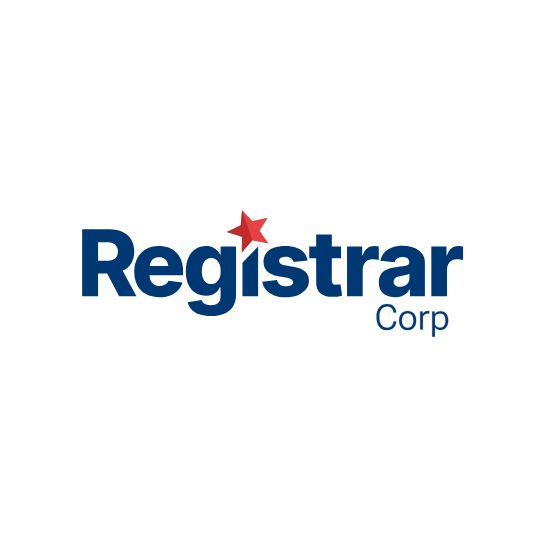Drug establishment registration is a foundational obligation for pharmaceutical companies seeking to manufacture, distribute, or import drug products into the United States. Far from a mere administrative step, this process forms a critical component of the FDA’s system for ensuring the safety, transparency, and integrity of the nation’s drug supply chain. Whether you are a domestic manufacturer or a foreign supplier, understanding how establishment registration and drug listing work—alongside compliance obligations like FEI numbers and SPL submissions—is essential to lawful operation and long-term market access.
In this article, we explore the key requirements, technical processes, and strategic implications of drug establishment registration under 21 CFR Part 207.
Understanding Drug Establishment Registration
Drug establishment registration is the process by which firms notify the U.S. Food and Drug Administration (FDA) of the physical locations (establishments) where drugs are manufactured, prepared, propagated, processed, or imported for commercial distribution in the United States.
This requirement is grounded in the Federal Food, Drug, and Cosmetic Act (FD&C Act) and codified under 21 CFR Part 207. The goal is to create a centralized, transparent system for the FDA to monitor and regulate the facilities responsible for producing or handling drug products distributed within the U.S. market.
Each registered establishment is assigned a Facility Establishment Identifier (FEI) number, which the FDA uses to conduct inspections, trace recalls, and facilitate import decisions. For example, a firm that fails to register could face an import refusal, as seen in numerous FDA warning letters published annually.
Who Must Register With the FDA?
Any entity—foreign or domestic—that engages in activities related to drug manufacturing or handling must register with the FDA. This includes:
- Drug manufacturers (active pharmaceutical ingredients and finished products)
- Repackers and relabelers
- Contract testing and sterilization laboratories
- Salvagers
- Importers of human drugs
Foreign establishments are subject to the same requirements but must also designate a U.S. Agent. The U.S. Agent acts as the point of contact for the FDA and is responsible for facilitating communication, coordinating inspections, and ensuring the firm responds promptly to regulatory inquiries.
Note: Drug compounders are regulated under different provisions (e.g., Section 503A and 503B of the FD&C Act) and are not subject to the same registration requirements under 21 CFR Part 207.
Why Registration Matters
Beyond compliance, establishment registration serves as the foundation for other regulatory functions:
- Tracking drug origins and supply chains
- Prioritizing inspections based on risk
- Enabling import decisions and enforcement actions
- Enhancing public access to drug information
Failure to register an establishment or list associated drug products can result in enforcement actions, including import refusals, warning letters, and in severe cases, product seizures. For example, FDA Import Alert 66-40 has listed multiple firms for failure to comply with registration and listing regulations.
What Information Must Be Provided During Registration?
Registration is conducted electronically through the FDA’s Electronic Drug Registration and Listing System (eDRLS), which uses Structured Product Labeling (SPL) formatted files.
Core Registration Data:
- Legal name and D-U-N-S (Data Universal Numbering System) number of the establishment
- Type(s) of business operation (e.g., manufacturer, repacker)
- Contact details for the responsible official
- U.S. Agent and importer details (for foreign firms)
- A list of all drug products manufactured or processed at the site
This information must be accurate, up to date, and submitted via the FDA’s Electronic Submission Gateway (ESG) or more commonly through FDA Direct, which includes its own built-in validation feature. SPL files must be prepared using validated SPL authoring tools. However, tools such as LORENZ docuBridge or Extedo’s eSUBmanager, which are eCTD-based systems, are not used for registration and listing.
What Is an FEI Number and Why Does It Matter?
The Facility Establishment Identifier (FEI) is a unique, site-specific identifier assigned by the FDA. It differs from other identifiers like an Employer Identification Number (EIN) or DUNS, and is used internally by the FDA to:
- Track inspections and compliance histories
- Coordinate enforcement actions
- Support postmarket surveillance and recall efforts
Unlike the EIN, the FEI is not issued by the IRS and is exclusively for regulatory purposes. Companies can request their FEI from the FDA or look it up using publicly available FDA tools if already assigned.
Drug Product Listing Requirements
In addition to registering the facility, firms must list each drug product that is manufactured, repackaged, relabeled, or imported into U.S. commerce.
Products That Must Be Listed:
- Prescription drugs (Rx)
- Over-the-counter (OTC) drugs
- Homeopathic products (in compliance with FDA’s CPG 400.400)
- Drugs not requiring an NDA/ANDA if covered by a monograph
- Unfinished drugs intended for further processing
Each product is identified with a National Drug Code (NDC), which follows a three-segment structure:
- Labeler Code: Identifies the company (assigned by FDA)
- Product Code: Specifies formulation, strength, and dosage form
- Package Code: Identifies package size and type
These identifiers are used throughout the healthcare supply chain for traceability, billing, and verification. NDCs are required on prescription drug labeling, but while recommended by FDA for other types of drug products, they are not mandatory on all labeling.
Timelines and Ongoing Responsibilities
Establishment registration and drug listing are not one-time events. Registrants must:
- Renew establishment registrations annually between October 1 and December 31
- Update drug listings whenever a change occurs (e.g., formulation, labeling, discontinuation)
- Promptly respond to FDA inquiries or inspection findings
Failure to maintain accurate and current records can result in deactivation from the FDA’s registry, import refusals, or more serious enforcement actions.
Public Access to Registration and Listing Information
The FDA makes establishment and drug listing data available to the public through searchable databases:
These databases are used not only by regulatory authorities but also by healthcare providers, wholesalers, and even consumers to verify product legitimacy and origin.
Common Pitfalls and How to Avoid Them
Many companies, particularly foreign firms or startups, encounter compliance issues due to:
- Submitting incomplete or inaccurate SPL files
- Misunderstanding the difference between FEI, DUNS, and EIN
- Failing to appoint a reliable U.S. Agent
- Listing products without matching labeling or missing NDC segments
Engaging experienced regulatory professionals can help avoid costly delays and enforcement risk.
Strategic Value Beyond Compliance
While drug establishment registration is a legal requirement, it also serves strategic purposes:
- Streamlined FDA interactions during inspections and pre-approval activities
- Market credibility for partners and buyers
- Facilitated entry into Group Purchasing Organizations (GPOs) and supply chain networks
- Reduced risk of import holds and detentions
Maintaining a clean regulatory profile, including up-to-date establishment and product listings, signals operational maturity and regulatory readiness to regulators, distributors, and business partners alike.
Registrar Corp: Your Partner for Drug Establishment Registration and Listing
Registrar Corp offers comprehensive services to help firms navigate FDA drug establishment registration and product listing requirements. From DUNS validation and SPL authoring to serving as your official U.S. Agent, we streamline the process and eliminate guesswork.
Whether you’re entering the U.S. market for the first time or need assistance with renewals, updates, or compliance remediation, our regulatory specialists provide end-to-end support with speed, accuracy, and assurance.
Contact Registrar Corp today to ensure your drug establishment registration and drug listing are complete, compliant, and positioned for success in the U.S. pharmaceutical marketplace.









